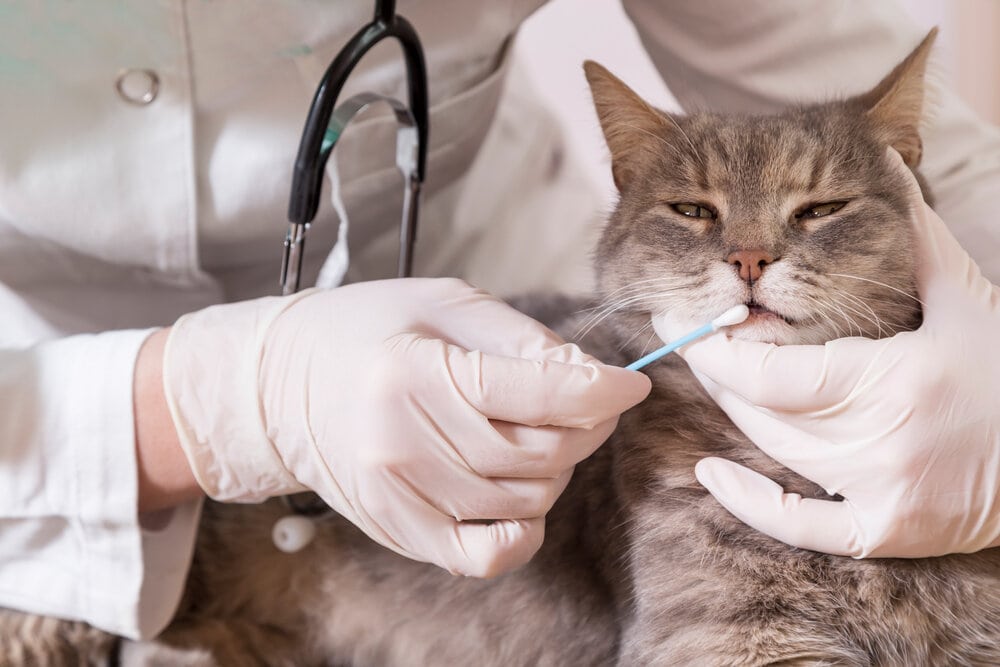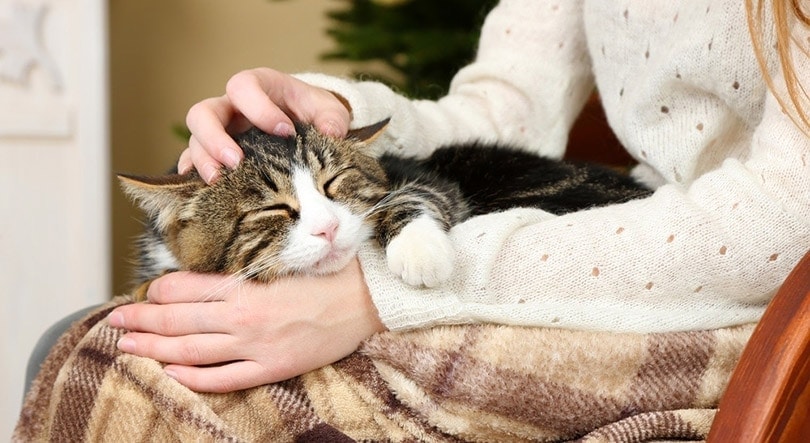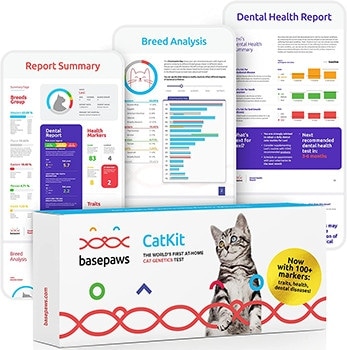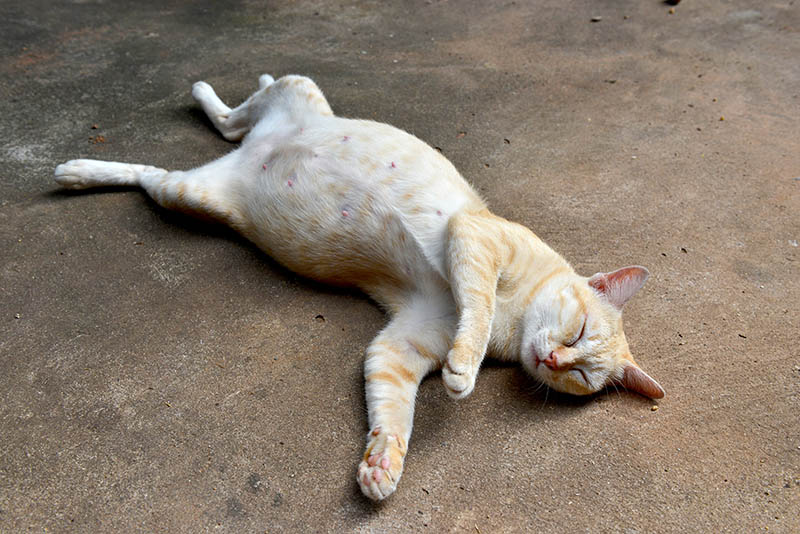How Do Cat DNA Tests Work? Purpose & Accuracy Explained
Updated on

Cats are regal, curious creatures that often march to the beat of their own drums. Unlike dogs, most domestic cats have an ancestry roughly 200 years old, making it tough to determine a cat’s precise heritage. Many companion cats do not come from breeders, leaving little to no information about genetics, such as personality traits, possible health problems, coat color, and more. If you have a feline friend you’re curious about, you can do a DNA test. But how do cat DNA tests work?
In this article, we’ll dive deeper into the fascinating world of cat DNA testing and what it entails. Hopefully, after reading this article, you’ll have a better understanding of what cat DNA testing actually is and if it’s worth the time and money to do.
What Is Cat DNA Testing?
Most people have heard of websites like ancestry.com and familysearch.org to use as a tool to find out one’s human heritage. We’re betting you didn’t realize there’s a version for cats! Cat DNA testing is a relatively new concept with kits you can buy to collect your kitty’s DNA. These tests usually consist of swabbing the inside of your cat’s cheek and mailing the swabs in to be examined. Depending on which test kit you buy, you’ll receive the results in a few weeks.

What Do Cat DNA Tests Check For?
DNA test kits can check for genetic health, blood type, and traits. These tests can come in handy if you find your feline fur baby is predisposed to certain medical conditions, such as heart disease, diabetes, polycystic kidney disease, or Feline Immunodeficiency Virus (FIV). If you discover your cat is predisposed, you can take care now instead of waiting until a disease rears its ugly head. Some tests claim you can determine your cat’s breed, which can explain your cat’s personality. If you want to know this information, be sure the test you choose checks for such lineage.
How Accurate Are Cat DNA Tests?
As we’ve mentioned, cat DNA tests are relatively new to the market and are not regulated. With that said, the results will not be 100% accurate. Still, they may give you a good starting point, meaning, if the test shows your cat may be predisposed to a certain medical condition, you can get a kick start with your veterinarian to run any possible tests needed to rule things out.
Unlike dogs, cats were not bred for specific traits and tasks, such as herding, and dogs were domesticated thousands of years ago. Cats basically domesticated themselves by showing the worthiness of catching rodents, like mice and rats.
How Much Are Cat DNA Test Kits?
With this being a relatively new concept, only a few kits are available, and they run anywhere from $89 to $420. Some have more features than others, and the more features, the more you pay for the test kit. One test we’ve discovered that has the most features and dives into your cat’s possible breed is Basepaws Cat DNA Test. This kit is one of the most popular choices and gives you different options of what to test for. They offer a Breed + Health DNA kit, as well as a Whole Genome Sequencing kit, which provides a complete look at your cat’s genetic information and history.
What if My Cat Won’t Let Me Swab Its Cheek?
Most cats will not enjoy having a weird object in their mouth, especially if it isn’t food. The best time to swab is when your cat is relaxed. Take care, though, not to attempt this while they’re sound asleep because you may have one startled and anxious kitty on your hands afterward. Having a treat in your hand is a good distraction. Let your cat see the treat; that way, your cat will know there’s a reward waiting.
Patience will be key during this process, depending on your cat’s personality. Some cats may be willing to let you do it with ease, and others may not want any part of the process. In that case, you may want to ask someone that your cat knows to assist you. One person can gently hold your cat while the other swoops in for the swab. It takes just a few seconds to gather enough cells for collection.
Summary
Since technology is ever-evolving, we now have the opportunity to check our cats’ DNA. Most cats are mixed-breed, and by knowing where your cat came from and detecting any possible health issues, you can have a leg up on preventing certain health conditions down the road. These tests also come in handy if you want to know why your cat is vocal, aloof, or outgoing. Pretty neat, huh?
Featured Photo Credit: Impact Photography, Shutterstock












